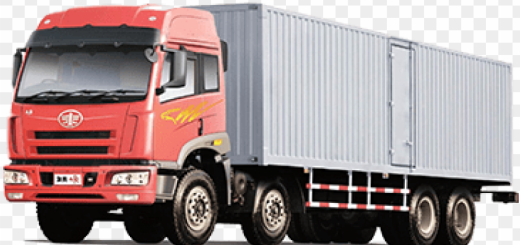Technology Integration Capabilities Offered by Logistics Providers
Logistics companies are starting to understand how important it is to integrate technology into their operations to maintain competitiveness, optimize workflows, and increase efficiency in today’s fast-paced and constantly changing world. Moreover, technology integration is the process of smoothly incorporating cutting-edge equipment, software, and systems into logistics operations to support data analysis, real-time tracking, improved supply chain visibility, and effective customer relationship management. Furthermore, technology integration enables logistics companies to streamline their processes, enhance operational efficiency, and deliver superior customer service.
In addition to providing insights into important considerations to take into account when selecting the appropriate partner, this article explores the significance of evaluating the technology integration capabilities offered by logistics providers. Moreover, it highlights the crucial role that technology plays in enabling efficient and streamlined operations in the ever-evolving landscape of supply chain management. Businesses can optimize their supply chains, improve customer satisfaction, and achieve sustainable growth in the highly dynamic logistics sector by knowing these capabilities and making well-informed decisions.
The Role of Technology in Modern Logistics
The current rapid advancement of technology has allowed it to be smoothly incorporated into every industry, including logistics. The days of tedious processes and manual documentation are long gone. With the introduction of technology, logistics providers can optimize their operations and effectively meet the expanding needs of their clientele.
Benefits of Technology Integration for Logistics Providers
- For logistics companies, technological integration has several advantages. First off, automating tedious operations and getting rid of human error, lowers costs and improves operational efficiency.
- Second, it increases the visibility and openness of the supply chain, enabling suppliers to track shipments in real time.
- Finally, logistics providers get a competitive edge in the market by being able to adjust to shifting consumer demands and industry trends thanks to technological integration.
Key Factors to Consider in Evaluating Logistics Providers’ Technology Integration Capabilities
-
Scalability and Flexibility of Technology Solutions
Scalability and flexibility are key factors to take into account when assessing a logistics provider’s technology integration capabilities. When your company expands, can its systems manage to handle larger amounts of data? Can their solutions be modified to meet evolving industry standards and corporate needs? Therefore, Technology solutions that are both scalable and adaptable guarantee that your logistics provider can meet the demands of the company.
-
Integration with Existing Systems
The integration of the logistics provider’s technological systems with your systems is an additional important consideration. To minimize interruptions, prevent duplication of effort, and ensure continuous data flow, seamless connectivity across various platforms and software solutions is vital. It takes less time and effort to ensure compatibility with your current systems. It facilitates effective communication between your company and the logistics provider.
-
Compatibility with Industry Standards and Regulations
It’s critical to assess how well a logistics provider’s technological integration skills align with industry norms and laws. Adherence to industry standards guarantees compliance with regulations, data security, and best practices. You may reduce risks, safeguard private data, and preserve the integrity of your supply chain processes by selecting a supplier who adheres to these requirements.
Understanding the Provider’s Roadmap for Future Technological Advancements
Lastly, remember to take into account the provider’s roadmap for further technology developments. Since technology is always changing, you need a logistics partner who keeps up with the latest developments. Do they embrace new technology proactively? Do they spend money on R&D to spur innovation? It will be easier to maintain technologically sound and future-proof logistics operations if you are aware of their future ambitions. Logistics providers need to keep ahead of the curve by adopting the newest systems into their operations as technology continues to evolve at an unparalleled rate.
Also Read:- 7 Strategies for Establishing a Flawless Logistics Business
Conclusion
By assessing the logistics providers’ technological integration skills, companies may guarantee more effective and smooth supply chain management, better visibility, and more customer satisfaction. In today’s rapidly evolving market, optimizing operational savings and gaining a competitive edge necessitates the selection of a logistics partner with exceptional technological integration capabilities.
Consequently, businesses must prioritize partnerships that can enhance efficiency, streamline workflows, and adapt to dynamic industry demands. Logistics companies can create a more integrated and flexible supply chain ecosystem by utilizing technology.




Recent Comments